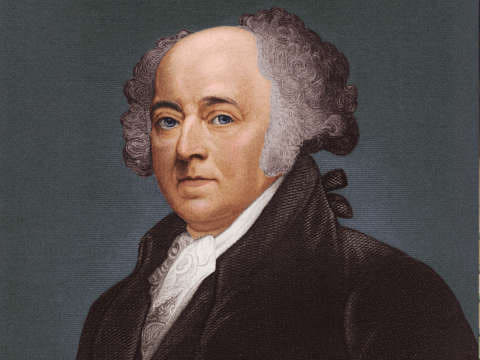In order to write this post about six famous fake quotes and misquotes, I will mainly use two books: “They never said it: a Book of Fake Quotes, Misquotes, and Misleading Attributions”, published by Oxford University, written by the late Paul F. Boller Jr. (Ph.D. by Yale and Professor Emeritus at Texas Christian University) and John George Jr. (Ph.D., retired Professor of Political Sciences at Central State University); and “Nice Guys Finish Seventh: False phrases, spurious sayings, and familiar misquotations” from the American writer Ralph Keyes.
Louis XIV — L’État c’est moi (“I am the state”)
The legend says the young King stormed into the Parliament, still in his hunting clothes, stopped the debate and stated: I am the state.
Based on the renowned historians Maurice Ashley and John C. Rule, specialized in France from that time period, George and Boller (page 95) assert that there are no evidences that the King has ever said that. However, Louis XIV, an absolutist, certainly believed those words misattributed to him.
Winston Churchill — If you’re 20 and not a liberal, you don’t have a heart. If you’re 40 and not a conservative, you don’t have a brain
Even “The Churchill Centre”, created in 1968 to preserve the memory of the British statesman, in its official page, in the “Quotes Falsely attributed to Winston Churchill” section, explain why he has never said such sentence:
‘If you’re not a liberal when you’re 25, you have no heart. If you’re not a conservative by the time you’re 35, you have no brain.’
There is no record of anyone hearing Churchill say this. Paul Addison of Edinburgh University made this comment: ‘Surely Churchill can’t have used the words attributed to him. He’d been a Conservative at 15 and a Liberal at 35! And would he have talked so disrespectfully of Clemmie, who is generally thought to have been a lifelong Liberal?
So, what is the origin of that quote? Ralph Keyes clarifies:
The most likely reason is that Bennet Cerf once reported Clemenceau’s response to a visitor’s alarm about his son being a communist: ‘If he had not become a Communist at twenty-two, I would have disowned him. If he is still a Communist at thirty, I will do it then’. George Seldes later quoted Lloyd George as having said: ‘A young man who isn’t a socialist hasn’t got a heart; an old man who is a socialist hasn’t got a head’. The earliest known version of this observation is attributed to mid-nineteenth century historian and statesman François Guizot: ‘Not to be a republican at twenty is proof of want of heart; to be one at thirty is proof of want of head’. Variations on this theme were later attributed to Disraeli, Shaw, Churchill, and Bertrand Russell.
Galileo Galilei — Eppur si muove (“And yet it moves”)
Did the Italian Astronomer really whispered those words in front of the Inquisition, after he abjured his heliocentric vision? No, Boller e George teaches us (page 31):
There is no evidence that Galileo stubbornly whispered these defiant words after being forced by the Inquisition in 1633 to abjure his belief that the earth revolved around the sun. It was a French writer, writing more than a century after Galileo’s death, who first put the words in the great scientist’s mouth. But they surely represented Galileo’s firm belief.
Also in this sense, Keys claims that no serious student of Galileo’s life thinks he really said that.
Voltaire — I disapprove of what you say, but I will defend to the death your right to say it
Both aforementioned books tell the same story: the phrase was written by the English writer Evelyn Beatrice Hall in her biography in 1906 about the French philosopher entitled “The Friends of Voltaire”. Boller and George explains (pages 124-126) :
According to Evelyn Hall, in 1758 Helvetius published De I’esprit (On the Mind), setting forth the idea that selfishness and the passions are the sole mainsprings of human actions and that there are no such things as virtues and vices. Voltaire was not impressed with the book; but civil and ecclesiastical authorities were highly incensed by it. The book was condemned by the Parlement of Paris, attacked by the Pope, censured by the Sorbonne, publicly burned by the hangman, and its privilege of publication revoked. In great distress, Helvetius insisted he had written De I’esprit in perfect innocence and hadn’t had the slightest idea of the effect it would produce. Parlement finally accepted his amende, but deprived him of a stewardship which he held at the time and exiled him for two years to Vore.
‘What a fuss about an omelette!’ Voltaire exclaimed when he heard about the book-burning. Evelyn Hall’s account of the episode concluded: ‘I disapprove of what you say, but I defend to the death your right to say it’ was his attitude now.’ She did not say that Voltaire either uttered or wrote the statement; she simply summarized what she thought Voltaire’s general attitude was and put it in quotes. Questioned about it in 1935, she explained: ‘I did not intend to imply that Voltaire used these words verbatim, and should be much surprised if they are found in any of his works.’ The defend-to-the-death quotation, though spurious, probably summed up Voltaire’s general attitude toward Helvetius accurately enough, and there was no desire on EvelynHall’s part to mislead anybody.
John Adams — This would be the best of all possible worlds if there were no religion in it
Some militant atheist sites use this quote to attack religion and to show an allegedly antitheism by John Adams, one of the Founding Fathers and second U.S. President. In a letter to Thomas Jefferson in 4/19/1817, while commenting about his reading of some polemical books against religion, Adams really wrote that sentence, but only to refute it and to exalt religion:
Twenty times, in the course of my late readirg, have I been on the point of breaking out, ‘this would be the best of all possible worlds, if there were no religion in it!!!!’ But in this exclamation, I should have been as fanatical as Bryant or Cleverly. Without religion, this world would be something not fit to be mentioned in public company—I mean hell
Niccolò Machiavelli —The ends justify the means
The Italian thinker never wrote such famous phrase. Nonetheless, it translates his ideas expressed in the Chapter XVIII of the classic “The Prince”:
Moreover, in the actions of all men, and most of all of Princes, where there is no tribunal to which we can appeal, we look to results. Wherefore if a Prince succeeds in establishing and maintaining his authority, the means will always be judged honourable and be approved by every one. For the vulgar are always taken by appearances and by results, and the world is made up of the vulgar, the few only finding room when the many have no longer ground to stand on









